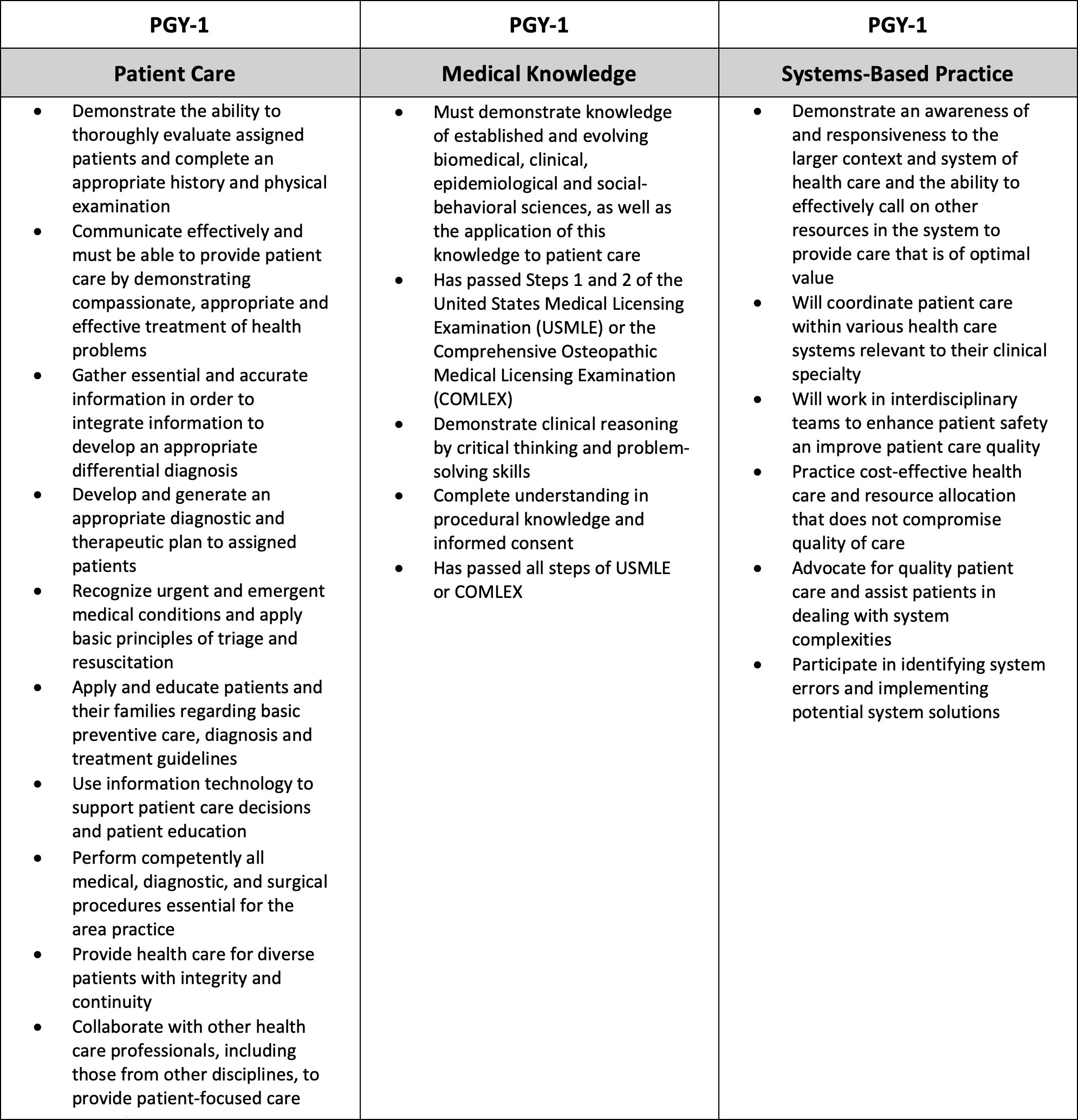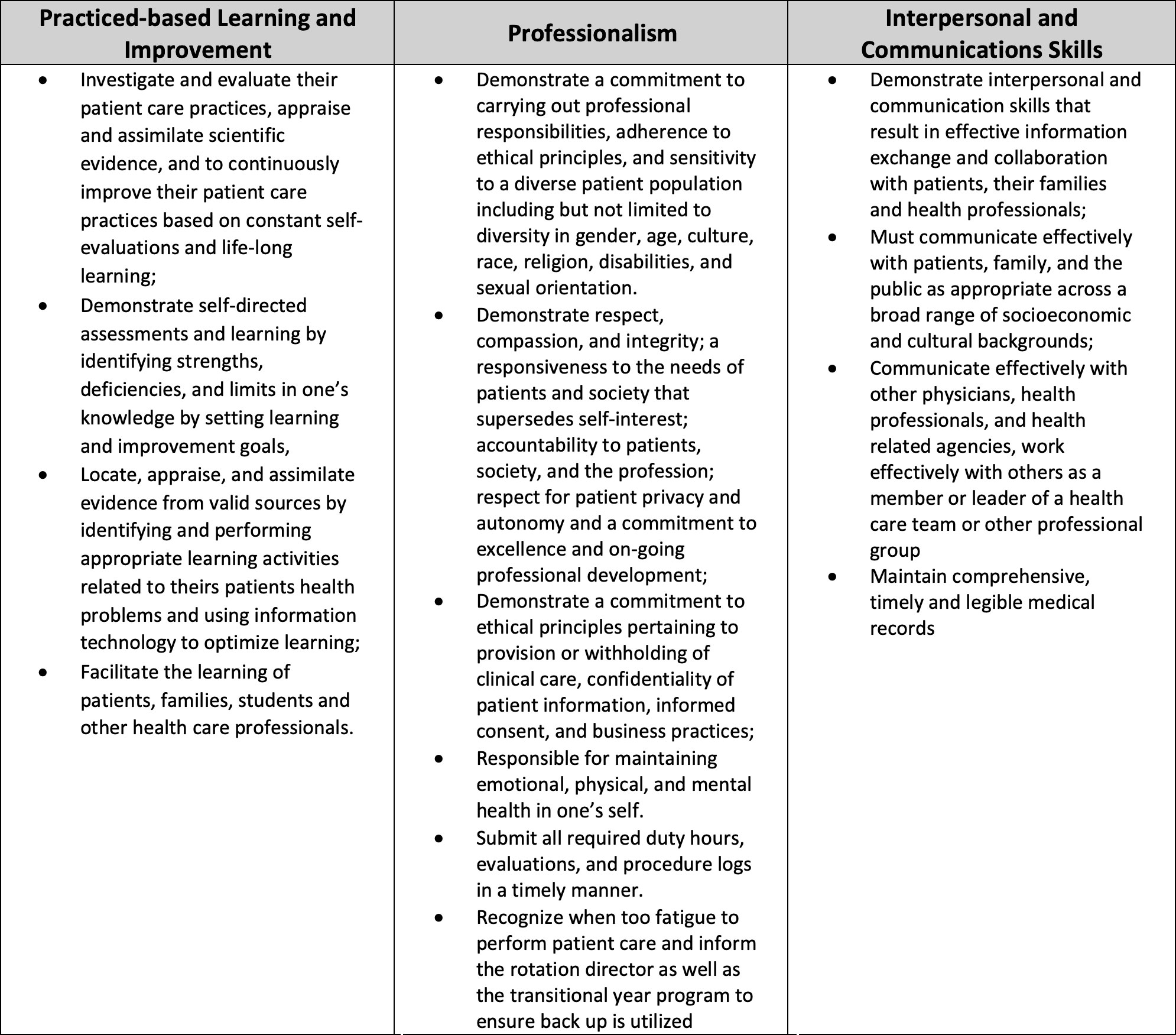
Competency Curriculum Goals and Objectives
The primary purpose of transitional year residency training is to provide residents with a well-balanced educational program covering multiple clinical disciplines designed to facilitate the preparation for a specific specialty.
During transitional year residency training at St. Joseph’s Medical Center, each resident is expected to develop strong clinical skills during a year that emphasizes experience in internal medicine, surgery, emergency medicine plus various approved elective rotations. Residents must demonstrate proficiency in comprehensive patient evaluation, assessment and reporting skills. They must also be able to develop differential diagnosis, interpret and act on test results and begin to assume increased responsibility for the management of assigned patients. Specific knowledge, skills, and attributes to be developed in each of the competency areas during the year include:


THE PROGRAM
- Message from the Program Director
- Competency Curriculum Goals and Objectives
- Core Competencies
- Salary and Benefits
- Didactics
- Wellness
NEW APPLICANTS
THE PEOPLE
THE LOCATION
SOCIAL MEDIA
